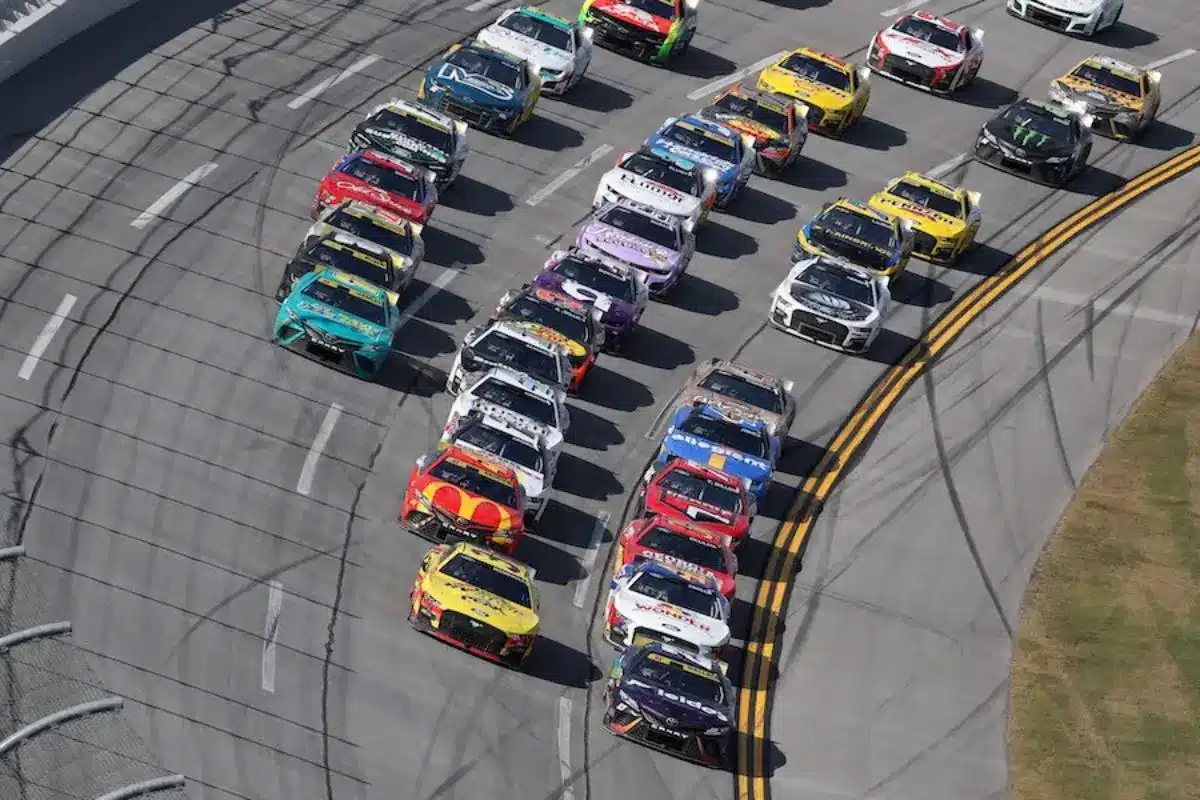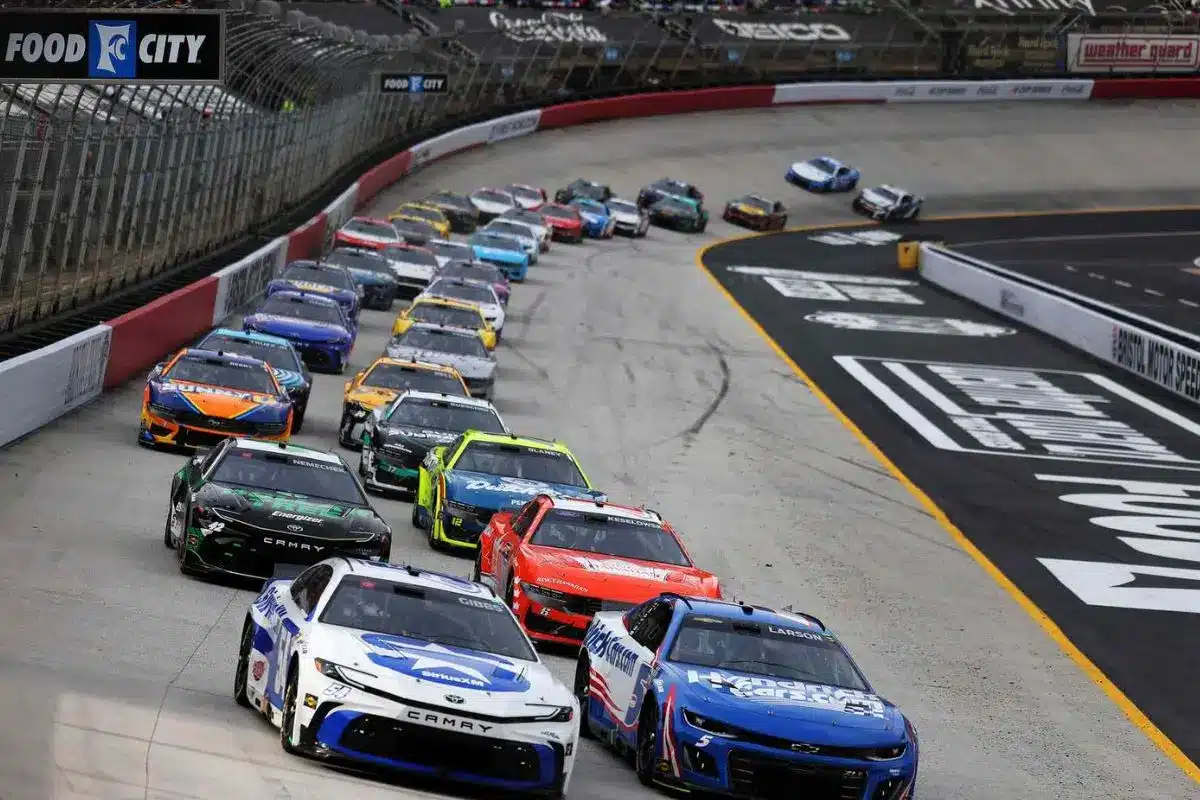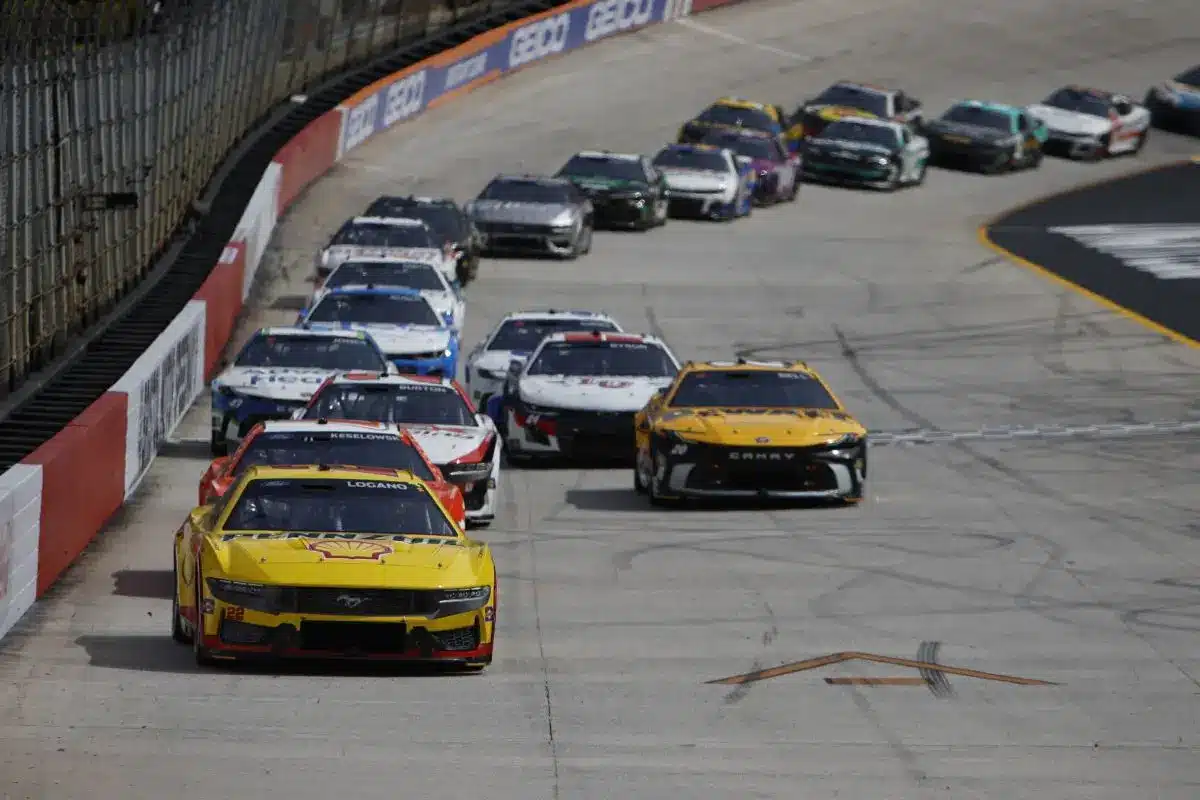Legal setback for 23XI Racing as a judge denied their request to access key documents related to the 2025 NASCAR Charter Agreement. The court, siding with NASCAR, stressed the importance of keeping financial information confidential and found that the teams’ requests were too broad. This ruling allows NASCAR to maintain control over its sensitive financial details. For 23XI Racing, this could impact their plans and strategies as they prepare for a more competitive racing landscape. The decision raises questions about how this limitation might affect their approach moving forward.
Key Highlights
- 23XI Racing’s request for expedited discovery regarding the 2025 NASCAR Charter Agreement was denied by the court, creating a challenge for their legal strategy.
- The judge ruled that the document requests were overly broad and upheld NASCAR’s financial confidentiality standards, limiting access to critical information.
- This legal setback may hinder 23XI Racing’s preparation for upcoming NASCAR hearings and impact their competitive strategy for the 2025 season.
- The ruling reinforces NASCAR’s regulatory framework, prioritizing financial privacy and potentially setting precedents for future team disputes within the NASCAR ecosystem.
- The ongoing litigation could distract 23XI Racing from on-track NASCAR performance, potentially affecting sponsorship opportunities and the team’s overall focus.
23XI Racing’s Expedited Discovery Motion and NASCAR’s Stand
Recently, 23XI Racing and Front Row Motorsports sought an expedited exploration motion in their ongoing legal dispute with NASCAR, reflecting their urgent need for clarity regarding the 2025 NASCAR Charter Agreement. This motion aimed to facilitate access to crucial documents concerning release provisions, which the teams believe are vital for constructing a compelling case for a preliminary injunction. Such an injunction would allow them to maintain their status as chartered teams in 2025, despite not having signed the new agreement.
However, NASCAR has publicly dismissed the request from both teams, asserting that their strategy for the upcoming season involves operating with only 32 NASCAR charters. This response highlights NASCAR’s firm stance in the legal landscape, suggesting that the governing body remains confident in its position. The refusal to grant access to the requested documents raises notable implications for 23XI Racing and Front Row Motorsports, as they prepare for a preliminary injunction hearing amidst what appears to be a robust defense from NASCAR.
The legal consequences of this dispute extend beyond the immediate interests of the teams involved. The outcome may set a precedent affecting how NASCAR charter agreements are negotiated and enforced in the future, potentially reshaping the dynamics of competition in NASCAR.
As the hearing date approaches, the tension between the involved parties demonstrates the intricate balance of power within motorsport governance and the complexities inherent in contractual obligations.
Court Blocks Discovery, Safeguarding NASCAR’s Financial Records
The court has ruled against 23XI Racing and Front Row Motorsports, blocking their request for expedited examination of NASCAR’s financial records and commercial agreements. This decision emphasizes NASCAR’s position in the ongoing dispute regarding NASCAR charter agreements and financial transparency. Both teams sought access to documents that they argued could reveal unfair contractual practices, but NASCAR contended that the motion was merely a tactic to negotiate more favorable terms.
The legal landscape surrounding this case has become increasingly contentious. 23XI Racing’s assertions included allegations that NASCAR engaged in private meetings with other team owners to solidify a take-it-or-leave-it charter deal, effectively limiting each team’s bargaining power. However, the court’s refusal to grant expedited investigation suggests that it may view the claims as speculative at this point, prioritizing the integrity of NASCAR’s financial confidentiality over the potential for revealing competitive advantages.
Furthermore, this ruling sets a precedent that may impact future negotiations within the sport. As NASCAR maintains its financial privacy, it simultaneously retains control over its contracts with teams. The implication is clear: the court has signaled that it will intervene only when there is substantial evidence warranting such action, rather than permitting what it deems to be opportunistic requests.
In this initial round, NASCAR has successfully safeguarded its financial records, leaving 23XI Racing and Front Row Motorsports to reassess their strategy moving forward. The ruling highlights the challenges that teams face in traversing the complex landscape of NASCAR’s commercial agreements.
Judge Rejects Motion for Expedited Discovery, Gives NASCAR an Edge
In a notable legal development, the judge’s rejection of 23XI Racing and Front Row Motorsports’ motion for expedited inquiry has provided NASCAR with a crucial advantage in the ongoing dispute. The decision, delivered prior to the preliminary injunction hearing, emphasizes the court’s stance on the matter. The judge deemed the teams’ request for documents overly broad, asserting that they indicated the possibility of prevailing without the requested materials.
“The motion by the teams for expedited discovery to get some documents from NASCAR before the preliminary injunction hearing Monday has been denied.”
“In denying the request for expedited discovery, the judge ruled the 23XI/FRM request for documents from NASCAR for use for the preliminary injunction hearing Monday was overly broad & the teams had indicated they could prevail on the preliminary injunction without the documents.” – Bob Pockrass
23XI and FRM have agreements in place to each buy a charter from SHR. The filings indicate the transfers still need NASCAR approval. SHR's Joe Custer told me he met with NASCAR and he doesn't believe he'll have to run those cars or sell charters to someone else. https://t.co/xRNT44Vx3M
— Bob Pockrass (@bobpockrass) October 30, 2024
This ruling positions NASCAR favorably as it seeks to inhibit the two teams from participating as chartered organizations in the 2025 NASCAR season. The judge’s logic highlights a few key points:
- Overly Broad Requests: NASCAR determined that the scope of the documents sought by 23XI Racing and Front Row Motorsports (FRM) was excessive, potentially diluting the focus on relevant evidence.
- Independent Viability: The court’s assertion that the NASCAR teams could prevail without the documents highlights a potential weakness in their argument for the injunction.
- Strategic Positioning: NASCAR now holds a stronger foothold in the legal proceedings, a position that could impact future NASCAR negotiations and outcomes across the sport.
The significance of the impending ruling on the preliminary injunction cannot be overlooked. While NASCAR has gained a temporary upper hand, the ultimate decision will hinge on the merits of the case presented in court.
This legal maneuvering highlights the complexities and significant risks involved in the ongoing battle between the teams and NASCAR, setting the stage for a crucial confrontation ahead.
Potential Consequences if 23XI Racing and FRM Become Open Teams
Running as open teams in 2025 would considerably alter the competitive landscape for 23XI Racing and Front Row Motorsports (FRM). Without the security of NASCAR charters, both teams face a precarious path to qualification for races. Open teams are not guaranteed a starting position, which introduces an element of unpredictability that could severely impact their competitive viability.
This uncertainty can strain operational budgets and affect sponsorship attractiveness, as partners typically favor teams with stable prospects.
Additionally, without NASCAR charter benefits, 23XI Racing and FRM would lose access to vital revenue streams, including a share of television money. This financial disadvantage could hinder their ability to invest in team development, technology, and talent acquisition, further widening the gap between them and their chartered counterparts.
The disparity in resources may lead to diminished performance on the track, making it increasingly challenging to compete against teams with established NASCAR charters.
Moreover, running as open teams could alter the tactical dynamics of race weekends. Both teams would need to prioritize qualifying efforts, potentially redirecting resources from race-day performance.
The Sale of SHR Charters and NASCAR’s Potential Influence
Amid the ongoing legal challenges surrounding 23XI Racing and Front Row Motorsports, the sale of two NASCAR charters from Stewart Haas Racing (SHR) has emerged as a vital factor in shaping the competitive future for these teams.
Both organizations, poised to expand to three-car teams, have acquired NASCAR charters from SHR, which is set to close operations at the end of 2024. However, NASCAR retains ultimate authority over the confirmation of these NASCAR charter transfers, introducing a layer of uncertainty that could jeopardize their investments.
The implications of this situation extend beyond just the teams involved:
- Operational Viability: If NASCAR denies the charter transfers, 23XI Racing and Front Row Motorsports may face considerable setbacks, undermining their competitive strategies for 2025.
- Financial Ramifications: The potential loss of NASCAR charters could lead to substantial financial losses for both teams, impacting their ability to secure sponsorships and maintain operational budgets.
- Impact on SHR: Should NASCAR intervene, SHR might be compelled to seek alternative buyers, complicating their own shift plans as they wind down operations.
“SHR’s Joe Custer told me he met with NASCAR, and he doesn’t believe he’ll have to run those cars or sell charters to someone else.” – Bob Pockrass
23XI and FRM have agreements in place to each buy a charter from SHR. The filings indicate the transfers still need NASCAR approval. SHR's Joe Custer told me he met with NASCAR and he doesn't believe he'll have to run those cars or sell charters to someone else. https://t.co/xRNT44Vx3M
— Bob Pockrass (@bobpockrass) October 30, 2024
The outcome will certainly influence the competitive landscape, emphasizing the intricate interplay between legal proceedings and NASCAR’s regulatory framework. Consequently, the stakes are high, and the future of 23XI Racing and Front Row Motorsports hangs in the balance.
News in Brief: Legal Setback for 23XI Racing
The recent ruling against 23XI Racing’s expedited inquiry motion significantly impacts the team’s legal strategy, granting NASCAR a substantial advantage in the proceedings. By blocking access to key NASCAR financial records, the court ensures that sensitive information remains protected, potentially reshaping the competitive landscape of NASCAR.
This decision could carry broader implications for both 23XI Racing and Front Row Motorsports, especially regarding operational transparency within NASCAR and the dynamics among NASCAR teams. The ongoing situation underscores the intricate relationship between legal considerations and NASCAR’s governance, reflecting the sport’s regulatory complexity.
ALSO READ: 23XI Racing Winning Their First Championship? Kevin Harvick Views on the Potential Lawsuit Drama



